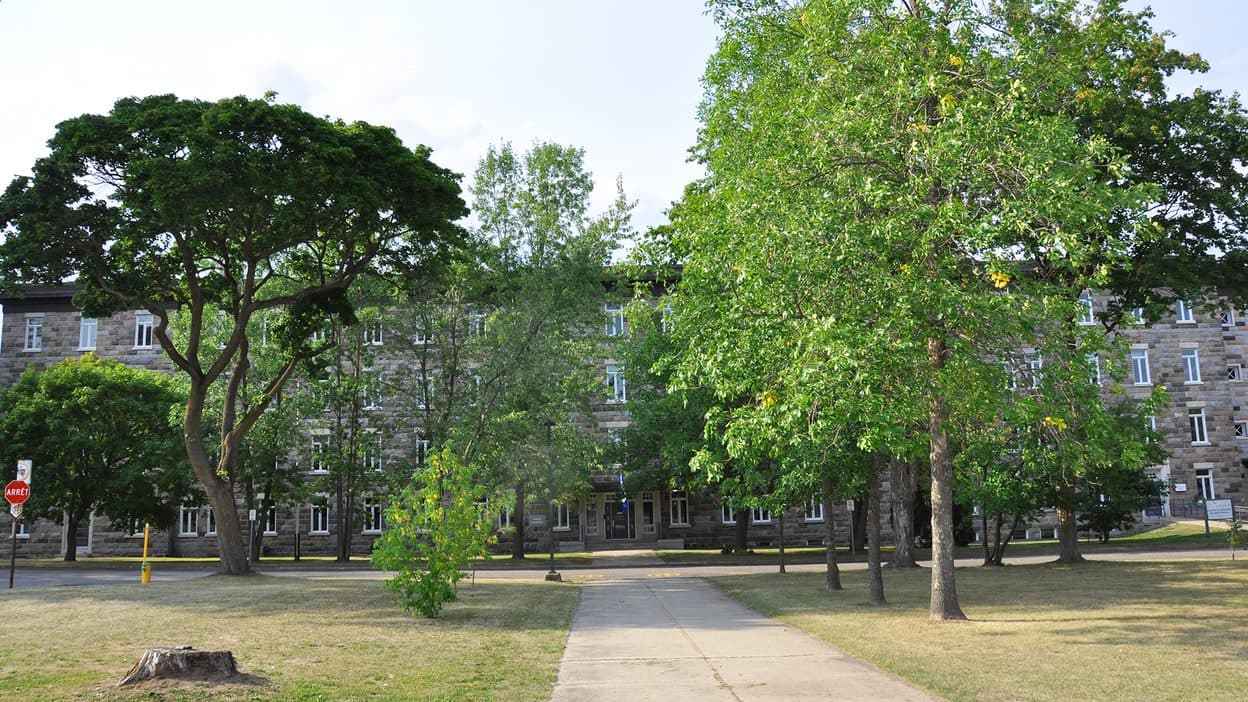The Role of Carbon Credits in Sustainable Communities
The school bell rings, the doors open and the students head out to enjoy the fresh air, taking a break from investing in their future. But beneath their feet, another investment is working equally hard for their future.
Chanoine-Beaudet High School, in Saint-Pascal, Quebec, Canada, has converted its no.2 oil heating system into one based on a geothermal design – essentially a series of pipes that pump water underground where it is heated in winter or transfers excess heat in summer.
It’s part of the Sustainable Community Project run by Will Solutions Inc. (“Will Solutions”), helping small and medium sized businesses, collectives and non-profit organizations across Quebec and Ontario to reduce their carbon and methane emissions and receive funds (via proceeds from the sale of carbon credits) generated from their emissions reduction activities.
The programs use a local community approach, supporting small emitters (below 25,000 tonnes of CO2 equivalent per year) and aggregating them into regional hubs, thereby helping to scale their efforts. A technology-enabled data collection and monitoring system consolidates information and communications to qualify, measure, stimulate, gather and convert emissions reduction activities into carbon credits.
In Quebec, there are 150+ member organizations participating so far with over 850 micro-projects launched to date, spanning enterprise, municipality, industry, manufacture, retail, buildings and public works, agriculture, tourism and many other sectors. Over the next decade, the programs in Quebec and Ontario are expected to collectively reduce more than 100 million tonnes of CO2 equivalent emissions and generate an equivalent number of carbon credits.
The greenhouse gas (“GHG”) emission reductions are achieved through activities such as waste diversion, energy conversion and energy efficiency initiatives, with plans to expand into transport. An example is the energy conversion project at Chanoine-Beaudet High School (pictured below) where an oil-fired heating system has been converted to geothermal energy. At the Montfort Medical Clinic in Jonquière, Quebec, the energy efficiency of their building has been improved through thermal insulation and fenestration.

The Quebec Sustainable Community project has been developed, registered and validated under Verra’s Verified Carbon Standard (“VCS”) as the first ever grouped project model validated by Verra. The Ontario Sustainable Community project has been listed with Verra and is expected to be developed, registered and validated under the same model.
The Quebec Sustainable Community project is one of the largest grouped projects in Canada to be registered with Verra and has been actively conducting activities that reduce GHG emissions since 2010 with carbon credits first issued in 2014.
In Quebec, the project has delivered consistently strong, measurable results. For this reason, Carbon Streaming entered into a carbon credit streaming agreement with Will Solutions to scale its Sustainable Community project in Quebec and develop and scale its Sustainable Community project in Ontario.
Carbon Streaming will receive 50% of the carbon credits generated by the projects, up to a maximum of 44.1 million carbon credits. The first delivery of approximately 425,000 to 525,000 carbon credits is expected in the second half of calendar year 2023, ramping up to approximately 10 million carbon credits in 2030.
The price of carbon credits for the Quebec project sold by Will Solutions has ranged from two to five times the CBL Global Emissions Offset (GEO) spot price. Carbon Streaming anticipates that carbon credits generated by the projects will continue to command premium pricing compared to the GEO price given the desirable location of the projects as well as the large proportion of emission reductions coming from methane avoidance. Methane has more than 80 times the global warming potential of carbon dioxide in the first 20 years of reaching the atmosphere.
The Sustainable Community projects will deliver on six UN Sustainable Development Goals, including Climate Action (13); Industry, Innovation and Infrastructure (9); Reduced Inequalities (10); Sustainable Cities and Communities (11); Responsible Consumption and Production (12); and Partnerships for the Goals (17).
Buyers of these carbon credits have included large Canadian corporations, including major financial institutions, pension funds, governmental organizations, industrials and food companies — therefore allowing these buyers to contribute to the creation of a decarbonized, collaborative, local and regenerative economy.
The school bell rings and the students slowly head back inside to their next lesson. The series of pipes in the ground below the school continue to pump and convert heat underground to warm and cool the classrooms accordingly as the next generation prepares for the future.
Forward-Looking Information: Some of the posted entries on the Carbon Blog may contain forward-looking information. Forward-looking information address future events and conditions which involve inherent risks and uncertainties. Actual results could differ materially from those expressed or implied by them. For further information about the risks, uncertainties and assumptions related to such forward looking information we refer you to our legal notice.